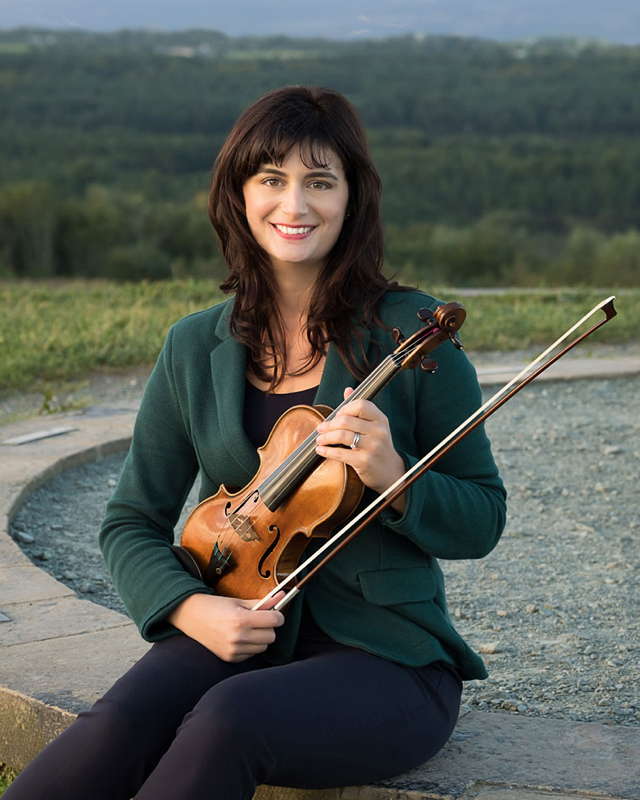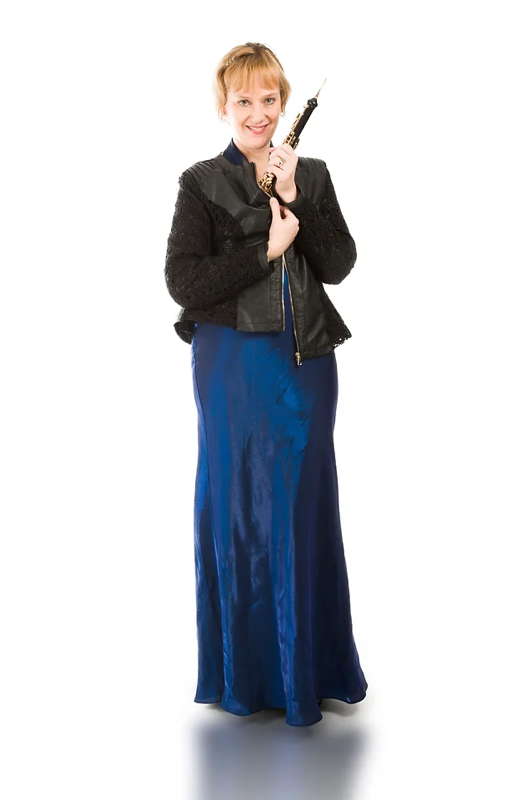- Annapurna Devi
- Teatro Regio
- Grand Piano Records
- Umberto Giordano
- Khayyam Mirzazade
- Hoxa Recordings
- From the New World
- Suffolk
Charm and Elegance
MIKE WHEELER is impressed by German baroque music from Sinfonia Viva
An hour of baroque music on a Sunday afternoon obviously rang a bell for a lot of people, given the size of the turn-out for Sinfonia Viva's concert of eighteenth-century German repertoire - Royal Concert Hall, Nottingham, UK, 5 March 2023.
OK, Handel was a naturalised British citizen by the time he composed his Op 6 Concerti Grossi, but that's a mere detail. No 7 of the set is one of two without designated solo parts. Following the slow opening movement, really no more than a brief curtain-raiser, the second movement fugue was kept on its toes with some nimble playing. The sarabande-like third movement had dignity, topped by director Sophie Rosa's brief cadenza at the end, and matched by the crisp elegance the players brought to the gavotte-style fourth movement. The concluding hornpipe was suitably bouncy.

Sophie Rosa
Johann David Heinichen has been unfairly marginalised, to judge from his Oboe Concerto in G, S 237. He began his career in the Leipzig area; like Handel, he spent some years in Italy, eventually settling in Dresden. He visited Italy ostensibly to learn the Italian operatic style, but he clearly paid attention to the Venetian concerto as well. Soloist Maddy Aldis-Evans shared the direction, in nimble dialogue with her orchestral colleagues in the first movement, calmly flowing and expressive in the second, with the strings' tiptoeing pizzicato figures in support, and leading a sprightly account of the last movement.

Maddy Aldis-Evans
Why has Telemann been so under-rated all these years? Some might say he was just too prolific for his own good, but his best-known orchestral suite, Burlesque de Quichotte, is a masterpiece of baroque descriptive music. Sinfonia Viva's performance had it all - mock grandeur in the opening movement, very soft, almost whispered playing in 'Don Quixote's Awakening', a measured start followed by furious streams of notes as he attacks the windmills, and tenderness for his infatuation with the imagined Princess Dulcinea. Sancho Panza got an appropriately bumpy ride as he was tossed in a blanket, and the two mounts were well characterised - Quixote's poor old nag Rocinante trying its best, and Panza's donkey with a mind of its own. As Quixote dreams of his next adventure, Viva's players pointed up the extra spice Telemann's attraction to Polish and Moravian folk music gave to the music's headlong rush.
Finally, Maddy Aldis-Evans returned to join Sophie Rosa in J S Bach's D minor Concerto, BWV 1060, the most popular of the putative originals back-transcribed from their surviving versions for harpsichord and strings. The soloists played off against each other with charm and elegance, and their poised lines interacted beautifully over delicate pizzicato textures, as in the Heinichen. It makes you wonder again what kind of opera composer Bach might have been in different circumstances. Unobtrusive virtuosity and driving, but not super-charged, energy in the third movement provided the perfect conclusion to the whole concert.
If this is the start of an early-music strand in the Royal Concert Hall's programming, bring it on!
Copyright © 13 March 2023
Mike Wheeler,
Derby UK





